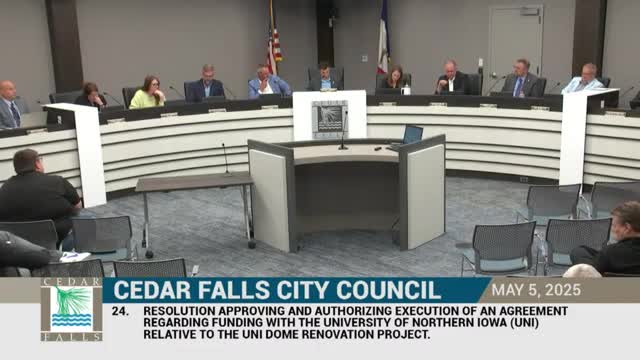Article not found
This article is no longer available. But don't worry—we've gathered other articles that discuss the same topic.
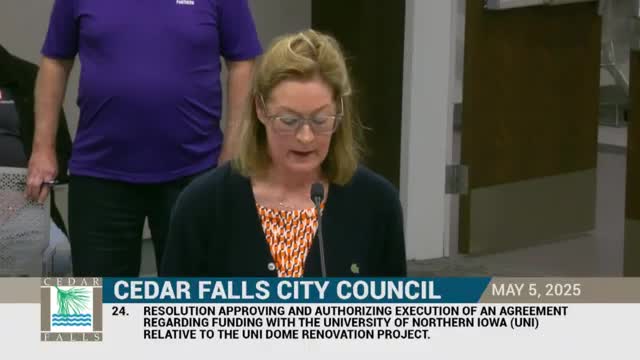
Votes at a glance: key actions from the May 5 Cedar Falls City Council meeting
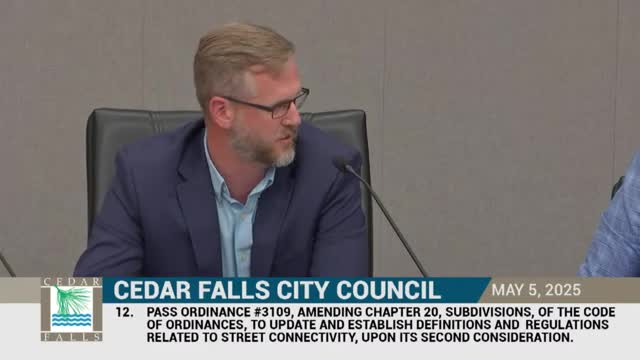
Council approves street-connectivity rules after heated debate over block perimeter limits
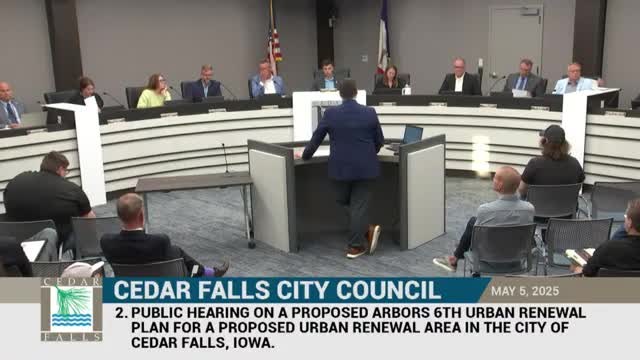
Council approves Arbor Sixth urban renewal plan, development agreements for new residential lots
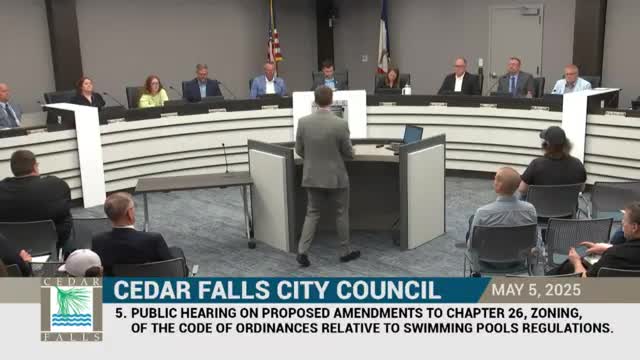
Council adopts first-reading changes to pool rules allowing certified automatic covers as fence alternative
